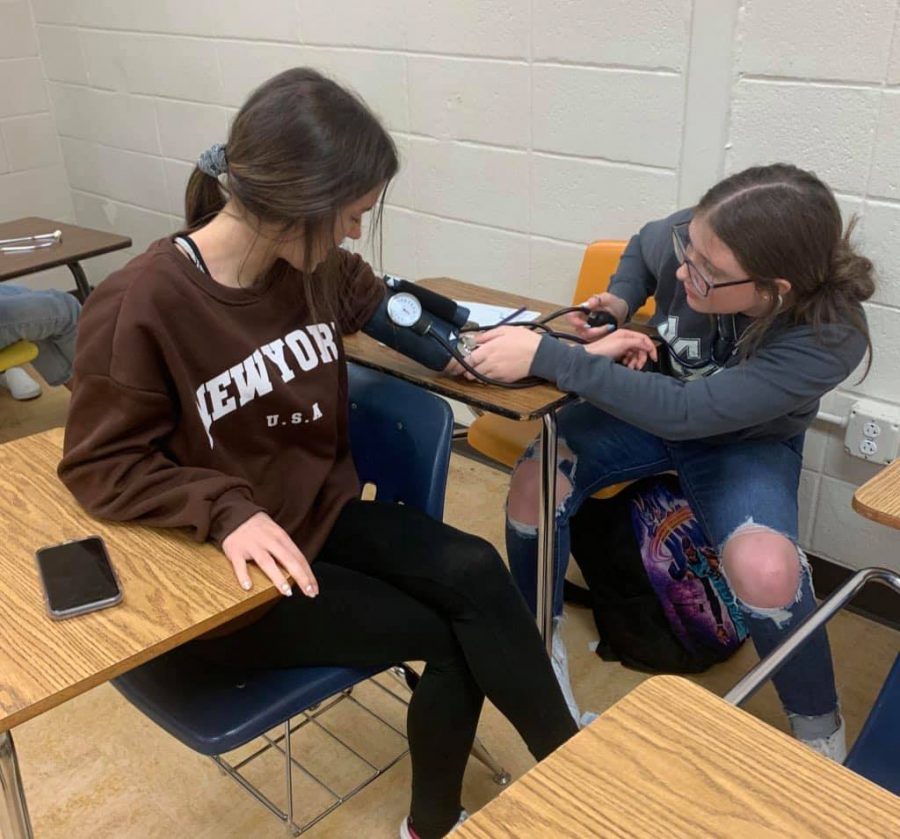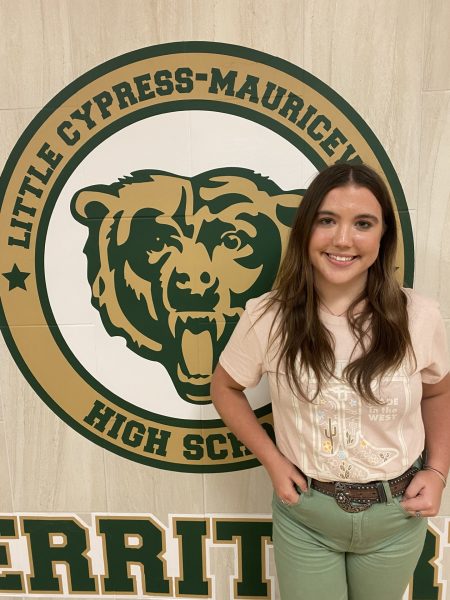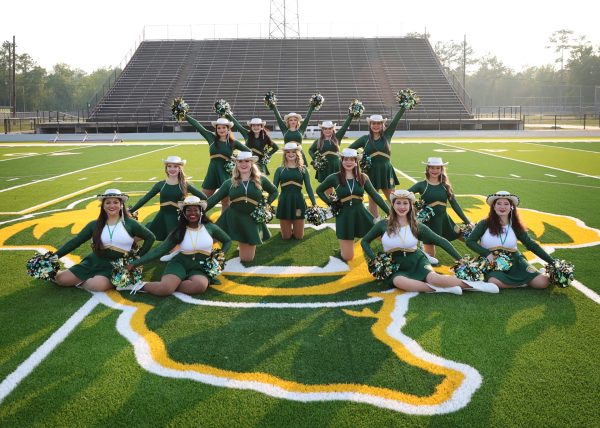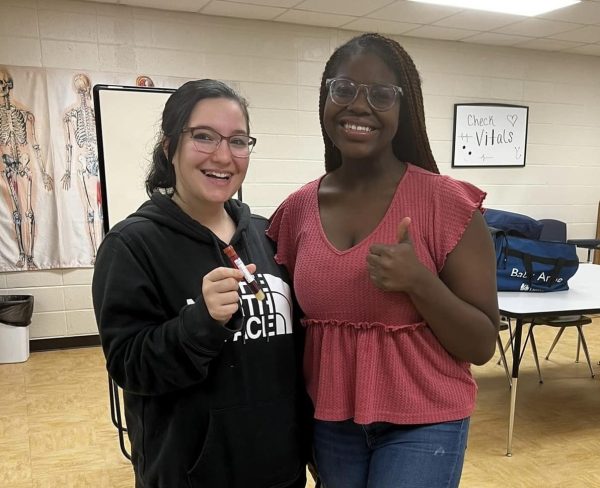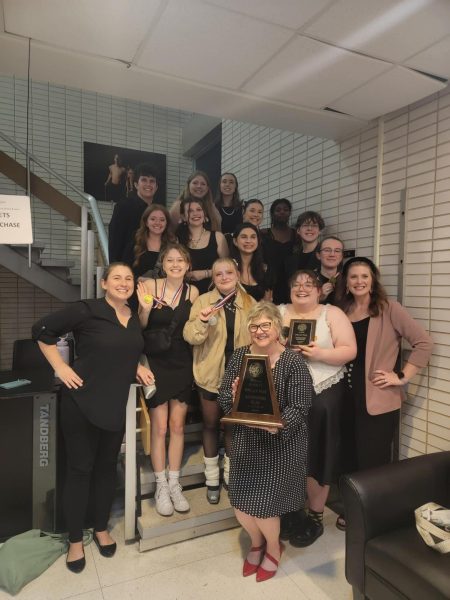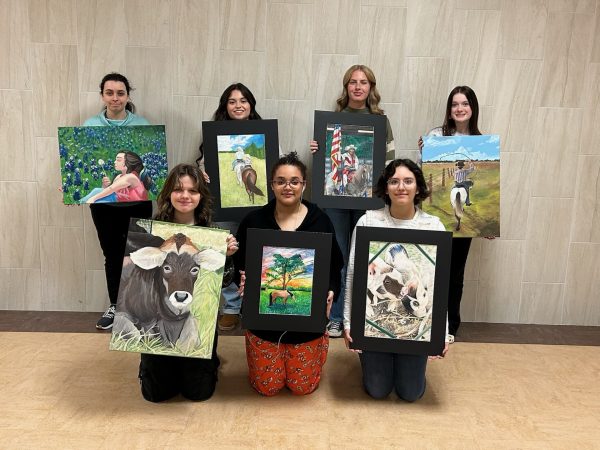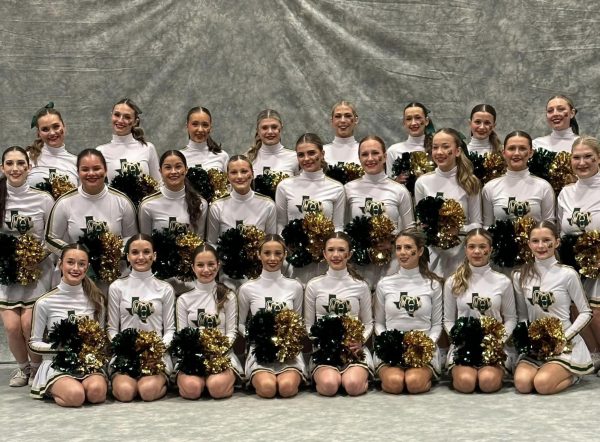Health science classes teach real world skills
November 9, 2021
Most high school students have a general idea of what they want to become once they graduate. This choice could mean anything from going into the movie industry as an actor or the medical field as a doctor. For those that choose the latter, the health science program is extremely helpful in their journey towards their career.
Classes included in the health science program include Principles of Health Science, Health Science Theory, Pathophysiology, and Pharmacology. These classes are taught by Tara Parsons and prepare the students for their future. The classes allow for new opportunities, especially while a student is in college.
“By taking these classes and getting a certification in high school, students can work professional jobs while in college,” Parsons said. “They can graduate high school as a phlebotomy technician, certified nurse aide, emergency medical technician, or pharmacy technician.”
When a student first begins their classes, the lessons are not all hands-on. They must learn the basics, then slowly make their way up to the more advanced lessons.
“They start off by learning about our body systems and how they operate,” Parsons said. “[Then they learn about] different diseases and how they affect the body, all the way to skills including how to draw blood, take vital signs, and patient care.”
I think it’s important for them to be able to apply what they are being taught into real-life situations.
— Tara Parsons
The lessons become more hands-on as a student advances in the program, with each lesson depending on the class they are currently taking. For example, some students learn how to perform CPR, and some learn to draw blood from a patient.
“This year, I have really enjoyed teaching my pathophysiology students how to draw blood,” Parsons said. “I love that it’s a hands-on skill that they will be able to use throughout their entire medical career. It’s been rewarding to watch the students develop confidence when performing this skill.”
Not all of the skills that students are taught are solely medical related, however. Some of the lessons are important life skills to have, no matter what profession a student decides to pursue.
“I also teach the students how to create a professional resume, job interviewing skills, and as many life lessons as possible,” Parsons said. “I think it’s important for them to be able to apply what they are being taught into real-life situations.”

